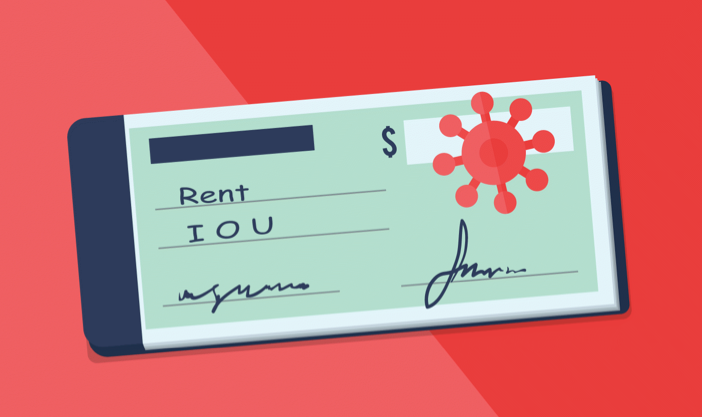CommentsDEEGAN ON LA-It’s hard enough dealing with today, let alone worrying about tomorrow, or next month, or November. Or, rent.
Renters -- almost half of LA fits that description – who depend on a job to be able to pay their rent, may have twin anxieties facing them if they are currently furloughed or otherwise not working.
One is the yet unanswered question of when the Covid-related emergency will be over, allowing employees to go back to work fulltime. The other is a related reality: if renters haven’t been working but do return to employment, they will not only have to pay rent again, but also be obligated to pay back rent.
Much of this turns on the answer to another question: what will be the official date that the emergency is declared “over”? That date will trigger the one-year clock for both renters and RSO landlords, who would usually be able to extract a 4% annual rent increase but not during this period.
In May, the City Council passed a rent freeze motion covering the 624,000 RSO units in the city.
While this forbearance has helped provide temporary relief for the pain of paycheck-less RSO tenants, their landlords are still aching. With or without rental income, they’re still on the hook for paying their mortgages, property taxes, and other operating expenses.
Trying to offset that, an amendment to the motion instructs city agencies “to report on potential actions the City can take to assist RSO property owners who will have a loss of rental income as a result of the Council's passing” the rent freeze. So far, no word.
So, landlords may get some help while RSO renters definitely have been helped. Even without the safety net of the rent freeze, RSO tenants will not be hit with the annual 4% increase.
What RSO renters and landlords have in common is uncertainty: the renters don't know when the freeze will be over, and the landlords don’t know if, or when, they will get any kind of relief.
Where does this leave non-RSO renters and their landlords? The RSO program only protects buildings that came into service prior to October 1, 1978.
Supply and demand is the answer, which is why RSO housing is so advantageous to tenants because of its annual cap on rent increases. Landlords of non-RSO housing, however, can increase rents as much as the market will bear.
Because RSO landlords are limited on their increases, they may be hesitant to make the sort of repairs that a “market-rate” landlord is willing to make in order to keep their building competitive in the housing market.
When an RSO unit changes hands, the landlord can upgrade the rent to market rate. A vacated RSO unit that was occupied for ten years with limited annual increases has a bigger spread between market rate and current rate than an RSO unit that vacated after one year of tenancy.
So, who are the winners and losers from the rent freeze? Lower income tenants for whom RSO housing is affordable housing because of the rent caps are major beneficiaries. The downside is if they have become unemployed and are not able to pay their rent, they will have a lot of back rent to pay and may struggle to the point that they face no option but eventual eviction.
On the upside of the freeze are the landlords. They will eventually get their back rents, and maybe even the opportunity to vacate a unit through eviction, so they can restate the rent at market rate levels. Their missed 4% increase is around the rate of inflation so not much gain or loss there, and they are operating a business that can take advantage of operating losses and tax credits on their tax returns. And most valuable for the landlords, is that property values continue to rise, so their buildings even if totally vacant, would be worth more next year than they are today. Many landlords may have inherited their properties. Many could also have another job and consider rentals as side income.
The biggest winners are employed RSO tenants that do not need RSO housing but could afford market rate instead. There is no “needs test” for getting RSO housing.
Losers include the presently unemployed. The longer they’re not working, the bigger their debt will grow, including the accumulation of back rents. “My assumption is that there will be a significant chunk, well into the millions,” Federal Reserve Chairman Jerome Powell said a few days ago, referring to the tens of millions of newly unemployed workers “who don’t get to go back to their old job, and, in fact, there may not be a job in that industry for them for some time.”
(Tim Deegan is a civic activist whose DEEGAN ON LA weekly column about city planning, new urbanism, the environment, and the homeless appears in CityWatch. Tim can be reached at [email protected].) Edited for CityWatch by Linda Abrams.
















